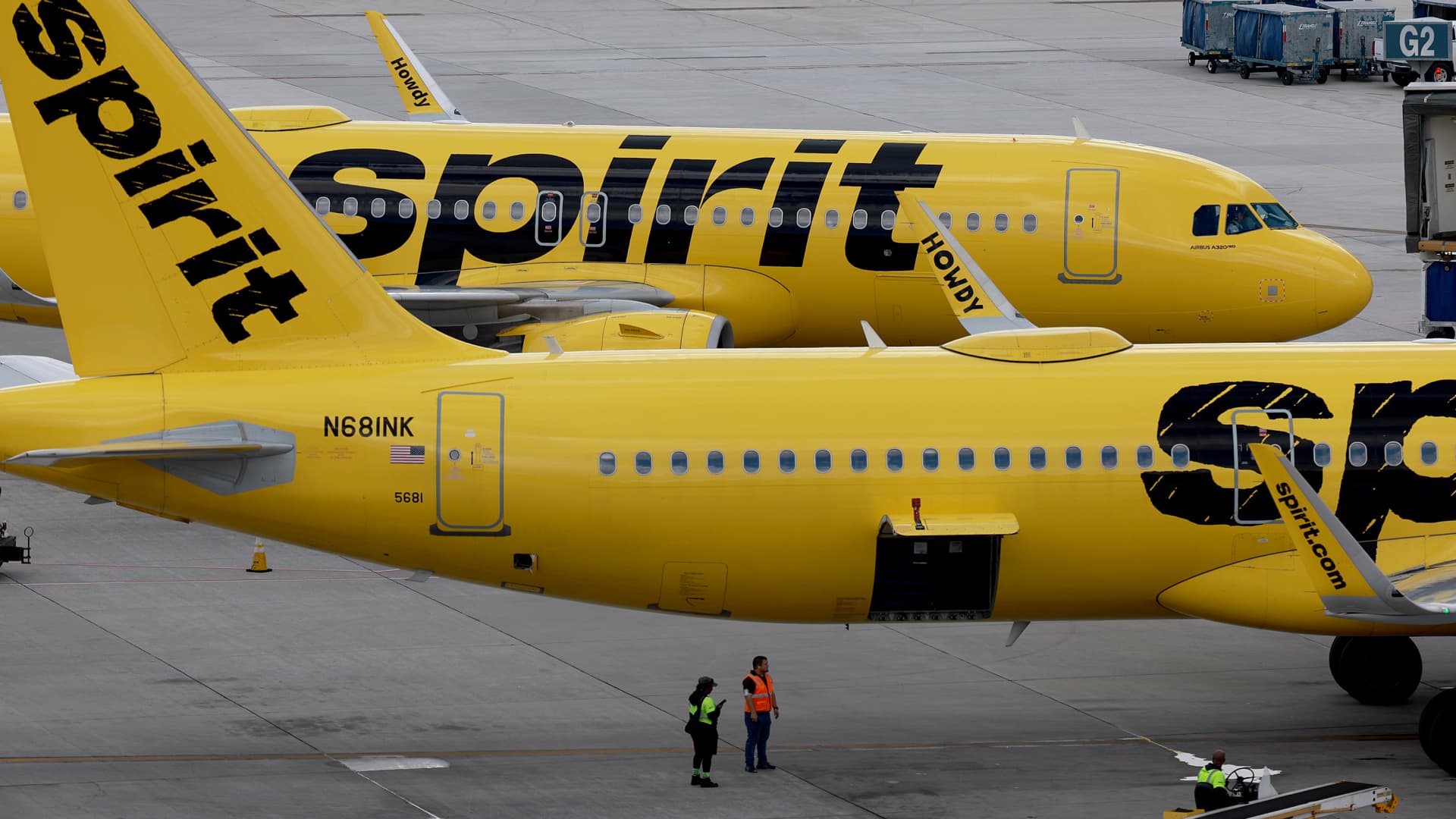
JetBlue Airways made a $3.6 billion all-cash offer for Spirit Airlines, raising questions about Spirit’s deal to combine with rival discount carrier Frontier Airlines.
Spirit said its board was evaluating JetBlue’s proposal and will “pursue the course of action it determines to be in the best interests of Spirit and its stockholders.”
The competition for Spirit shows renewed appetite for consolidation in the airline industry as carriers dig their way out of two difficult pandemic years. Carriers are now scrambling to hire pilots, flight attendants and other workers as the travel business rebounds.
JetBlue’s bid comes less than two months after Spirit and Frontier agreed to merge into a discount airline behemoth, which would make it the country’s fifth-largest airline.
Trading in Spirit shares was halted before the market closed Tuesday after the stock spiked more than 22% to $26.92. JetBlue offered $33 a share in its unsolicited all-cash bid, Spirit and JetBlue said. The New York Times earlier reported JetBlue’s offer.
JetBlue shares closed down about 7%.
Spirit and Frontier both solely fly planes in the Airbus A320 family. Those aircraft make up the majority of JetBlue’s fleet, as well, which would reduce costs and logistical headaches in combining the carriers.
JetBlue also has a large operation in Florida, where Spirit is headquartered. It said the combined airline would have 32,000 employees and would keep its headquarters in New York.
“When we grow and introduce our unique value proposition onto new routes, legacy carriers lower their fares and customers win with more choice,” JetBlue CEO Robin Hayes said in a news release. “The transaction would accelerate our strategic growth and create sustained, long-term value for the stakeholders in both companies.”
A wave of consolidation in the airline industry that began more than a decade ago left four major carriers in control of more than 70% of the U.S. market.
“Once you have megacarriers with more than 1,000 aircraft after the backbone of the industry, then it’s appropriate for the No. 5 airline to beef up,” said Samuel Engel, senior vice president and aviation analyst at consulting firm ICF.
JetBlue has a partnership with American Airlines that allows the carriers to coordinate service in the U.S. Northeast. The two airlines see the agreement as giving them a better chance to compete against United and Delta Air Lines in crowded airports in New York and Boston. The Department of Justice sued to block that partnership last year.
The DOJ and American both declined to comment on JetBlue’s offer for Spirit, though JetBlue said Tuesday the merger with Spirit would complement its alliance with American.
Frontier defended its deal to combine with Spirit and said an alternative tie-up with JetBlue would make travel more expensive. The airline also questioned JetBlue’s offer amid the Justice Department lawsuit.
“In particular, the significant East Coast overlap between JetBlue and Spirit would reduce competition and limit options for consumers,” Frontier said. “It is surprising that JetBlue would consider such a merger at this time given that the Department of Justice is currently suing to block their pending alliance with American Airlines.”




